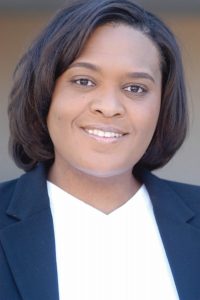Share
The conventional way of acquiring an education at a college before starting one’s career is both outdated and far too time-consuming.
Of course, I am not saying that this method of gaining knowledge should be eradicated as it does play an important role. Plenty of professionals benefit greatly from receiving a degree prior to starting their desired field of work, and for many employers, it’s a requirement. What I am illustrating is that many do not have the privilege of attending college. This may be due to lack of funds, family obligations, or having an unfavorable academic history. Persons may also prefer to avoid the long journey of pursuing further education and opt to attain an early start in working experience.
Unfortunately for individuals here in the British Virgin Islands (BVI) who identify with any of these circumstances, there are little to no alternative options available for them. Power 52 Caribbean Energy and the H. Lavity Stoutt Community College (HLSCC) have partnered to change this status quo with the enactment of a solar energy-focused certification programme.
Ms. Kelly-Ann Few is the master trainer of the Power 52 Caribbean Energy Institute being housed at HLSCC. Ms. Few is a Civil Engineer by trade and has been working in environmental sustainability for over thirty years. She devotes her life to creating sustainable opportunities, whether economical, community-oriented or environmentally and energy informative. Along with a National Center for Construction Education and Research (NCCER) certified craft instructor, Ms. Few provides students and trainees with the education and curriculum necessary to become a PV Solar Installer. The entire class curriculum length is eleven weeks, and students are given certification exams throughout the course.
Successful students take part in the graduation ceremony and receive their acquired certifications. Trainees in this programme are eligible to receive a certification from the NCCER and the North American Board of Certified Energy Practitioners (NABCEP). These credentials open many doors for students well beyond the solar energy field; they also extend globally into the construction industry. Students of this course may even go on to becoming entrepreneurs in the business. Nevertheless, Ms. Few does encourage her ambitious trainees first to attain hands-on experience to grasp a better understanding of how infrastructure operates.
When asked about the diversity amongst the students enrolled in the programme, Ms. Few stated that she has seen a wide array of students, both male and female ranging from ages 18 to 63. She also stated that there are a number of students who are seeking a solution that would aid in increasing their current position in life. Some individuals came to the programme with prior experience in the electrical field and wanted to build on their capabilities. Those with no prior experience came in search of access to new and future job opportunities. There are also some enrollees who have drifted in life and found themselves in the judicial system; this programme has given them the chance to reshape the projection of their future and rise above becoming a statistic.
When asked how she thought the students were coping with the course work, she replied, “They’re coping well although there are instances where students have broken under pressure, but we are there to counsel them through those moments. According to Ms. Few, extra guidance is given at the beginning of the programme to help students adjust to the future course of work. Time is devoted to molding the trainees into receiving new and vast amounts of knowledge and insight into applying what they’re being taught. I am sure that this level of support was greatly appreciated by the students, especially those who have formerly completed their education and previously struggled academically.
When asked about her vision for the programme’s future, Ms. Few stated that as HLSCC begins to expand their trade and short course programmes, this will be a part of their premier programmes, allowing support for both the community and the solar industry. Ms. Few hopes it can lead to the BVI being one of the leaders of the solar industry.
The use of solar energy is the wisest choice environmentally. It allows us to use a natural resource to fulfill our everyday needs. When weighing the pros and cons of using solar energy, the capital may be expensive, but the overall benefits far exceed the initial investment. So why not use a source that is as constant as the sun rather than one that can be depleted? In the words of Ms. Few, “It simply makes sense”.
The Power 52 Caribbean Energy Institute is the beginning of great things to come. The programme supports the community by creating job opportunities that were not available prior and allowed individuals to build on their crafts. The possible commencement of similar programmes would open many doors for those who do not have the privilege of attending a conventional college. The programme also supports the environment through the encouragement of utilising solar energy. “My hope is that this leads to the use of more renewable energy sources throughout the territory, keeping our BVI beautiful and enjoyable for many generations to come, ”Ms. Few concluded.






